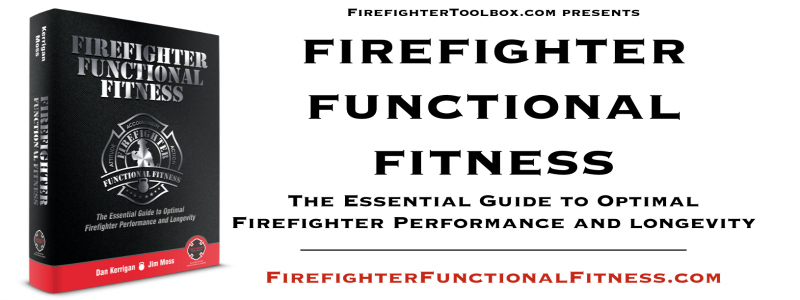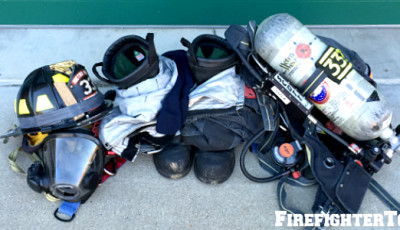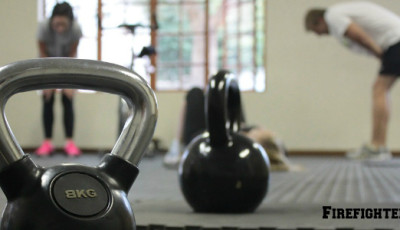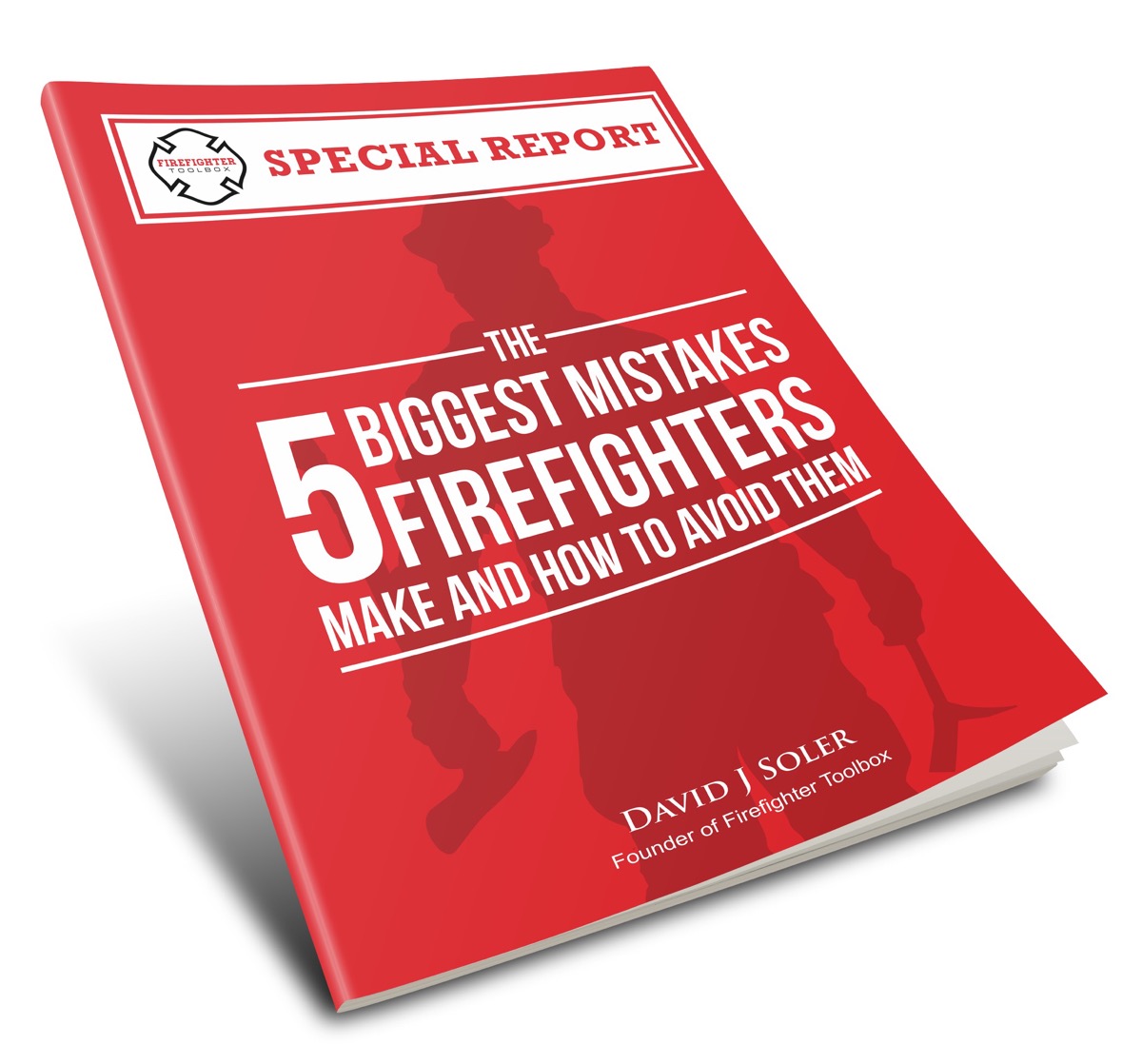10 Key Eating Principles for Losing Weight & Staying Thin
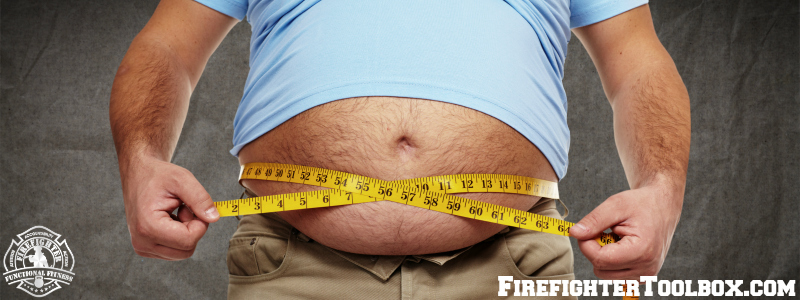
Firefighters frequently ask us the best methods for losing weight, and with good reason. The National Volunteer Fire Council (NVFC) recently published the document Addressing the Epidemic of Obesity in the United States Fire Service. It details the fact that more than 70% of the American fire service is overweight.
Obesity is a major problem because it increases a firefighter’s risk of heart disease, diabetes, cancer, and other health ailments. If a firefighter has obesity, they are 3.1 times more likely to suffer sudden cardiac death while performing firefighting duties (Source: Kales, “Heart Disease in the Fire Service”).
For firefighters who want to get their weight under control, put the following principles into action.
#1 – All Calories Are Not Created Equal
There is a big difference between 200 calories from a serving of almonds and 200 calories from a soda. The former has healthy fiber, protein, carbohydrates, and fat; the latter is nothing but sugar and empty calories (which will immediately be converted to fat once they reach the liver).
#2 – Focus on Eating The Right Foods
Choose foods with healthy fats, unrefined (natural) carbohydrates, and lean proteins. Choose nuts, avocados, fiber-rich fruits and vegetables, whole grains, fish, poultry, and cuts of meat with “loin,” “sirloin,” and “round” in the description.
#3 – Start Small
Making small, incremental changes yields greater long-term success because they are easier to adopt and stick with. For example, I (Jim) used to drink 2 sodas per day. I eventually reduced my intake to 1 per day, then switched to diet soda, and finally weaned myself off of soda completely.
#4 – Eat 4-6 Small Meals Throughout the Day
Instead of “starving yourself” or eating 2-3 very large meals, eat 3 medium-sized meals with 2-3 medium-sized snacks throughout the day. Only eating 2-3 large meals alone leads to a rollercoaster response of spiking blood sugars and massive insulin release, which is counterproductive to weight loss.
#5 – Go “On the Record”
When you have made the decision to start eating better, measure all of the food you eat and record it in a food diary for 1 week. Being more aware of the foods we eat helps us to make better choices. Download smartphone apps like MyFitnessPal or MyNetDiary to plug in your calories. You will be surprised what you learn!
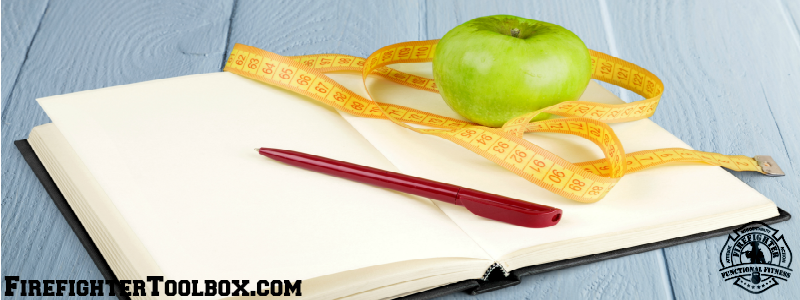
#6 – Drink Plenty of Water to Stay Hydrated
For average-sized, sedentary adults, men should drink at least 13 cups per day and women should drink at least 9 cups per day (Source: National Academy of Sports Medicine). Staying fully hydrated increases our feeling of fullness, which encourages us to eat less. Firefighters typically require even more water to stay hydrated because of the physiological effects of the work we do.
#7 – Cut or Reduce “Empty” Calories
Sugar, soda, alcohol, and refined carbohydrates like white bread and white rice cause our blood sugar and insulin to spike. Sugar is like kryptonite to firefighters–avoid it at all costs. Over time, reduce your intake and eventually eliminate soda and sugary energy drinks from your diet.
#8 – Go Natural
Natural foods should always be the first choice over highly processed, preservative-laden foods. The latter has been proven to have higher amounts of calories and do not promote satiety (feeling of fullness).
#9 – Say NO to Diet Soda
It is true that diet soda has no calories. However, artificial sweeteners in diet sodas confuse your brain and your body. What can result is a false confidence to overindulge in unhealthy foods. Additionally, some artificial sweeteners have been linked to cancer.
#10 – Don’t Eat Directly Out of the Container
Whether it is a bag of potato chips, a box of crackers, or a carton of ice cream, choose a modest portion and put it in a bowl. Then seal up the bag or container and put it out of sight. When we eat directly out of the container, we lose track of our portion sizes–leading us to overeat and consume excessive calories.
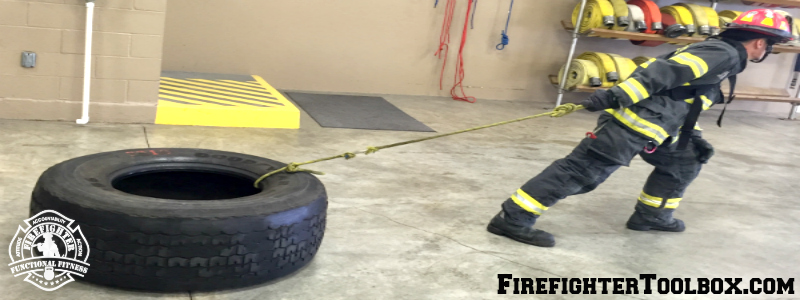
Bonus Tip: #11 – High-Intensity Interval Training is Great For Weight Loss
High-Intensity Interval Training (HIIT) burns more calories and fat than long duration, low-intensity exercise. HIIT also results in greater “excess post-oxygen consumption” after exercise and therefore boosts the body’s metabolism levels—burning more calories even when you’re not exercising.
Take your fitness and health to the next level with Firefighter Functional Fitness. Visit FirefighterFunctionalFitness.com to learn more.

